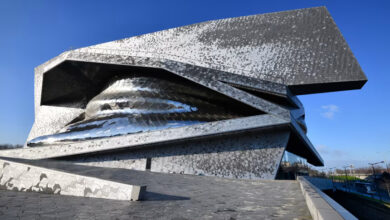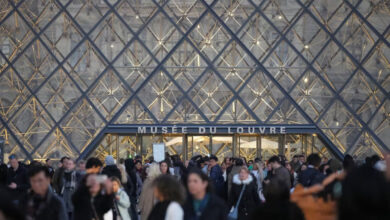
There was a story about the city where what mattered most was the human crisis, disregarding the danger that threatened the structure. It was the story about Paris’s destiny by the end of the German colonization, when Hitler ordered to ruin the city before pulling out.
But the general assigned to the task declined to obey the leader’s orders!
In a book published in 1951, Dietrich Hugo Hermann von Choltitz, claims that his fondness of the city was the thing that motivated him to disobey his commander, saying he thought Hitler had gone insane. However, in a recent movie by German director Volker Schlöndorff , the rescue of Paris is credited to Swedish consul Raoul Nordling who, according to the movie, convinces the general to go back on that plan, telling him that it was not the way he wants to go down in history.
In his critique about movie, published in the New York Review, influential Dutch writer Ian Buruma said the German general neither thought Hitler was crazy, nor was convinced of the Swedish consul’s advice, nor did he do it out of love for Paris. In fact, says Buruma, Choltitz believed that saving Paris would be in his favor during any post-war trial.
Most probably, the truth is a mixture of the aforementioned interpretations. Obviously, the aristocratic general who took part into the burning of central Rotterdam in 1940, did not view Paris the same way he did the city of Warsaw in Poland, which Nazis had demolished on a wide scale before their withdrawal. At that time, Paris was the capital of world civilization. The structures meant for demolishing were not merely beautiful architectures and delightful boulevards, but also a materialization of cultural and intellectual accumulation. In those buildings, museums and libraries resided the the intellects who shaped the culture the general was directed to liquidate. He had the feeling that history-and judges- would never have pardoned him had he burned Paris.
But is that to suggest that the destruction of the ancient city of Warsaw was acceptable? absolutely not. The point is that what saved Paris amid highly exceptional, demagogical circumstances was not only its beauty, but also the inherent, accumulated intellect that was reflected in its structures and obsessed the living humans whose trials Choltitz feared.
Intellectual productivity continues even with the collapse of the relevant material structure. But if thought vanishes, historic monuments lose the context that links us to them, and become irrelevant to our contemporary interests. This is what makes the burning of the Bibliotheca Alexandrina immortal to the mind; the Alexandrian culture influences contemporary civilization, whilst physically existent civilizations lack the influence.
The intellectual language is the most significant tool linking generations. Even when catastrophes do happen, future generations never pardon those who denied them the clue to what the ancestors innovated.
So, amid the current obsession with material and technological progress, a question has to be posed: do we have the cultural project-or at least the environment- that history can honor us for? something that can make us expect the progress we seek or make our quest meaningful?. In a broader Arab context, I wonder what would encourage future generations to preserve what is left by today’s Cairo, Riyadh or Dubai? Does their physical structure represent something worthy of preservation and revival throughout generations?.




